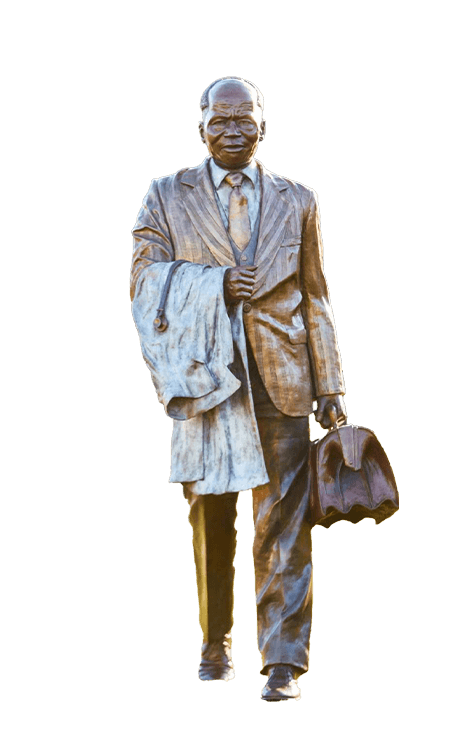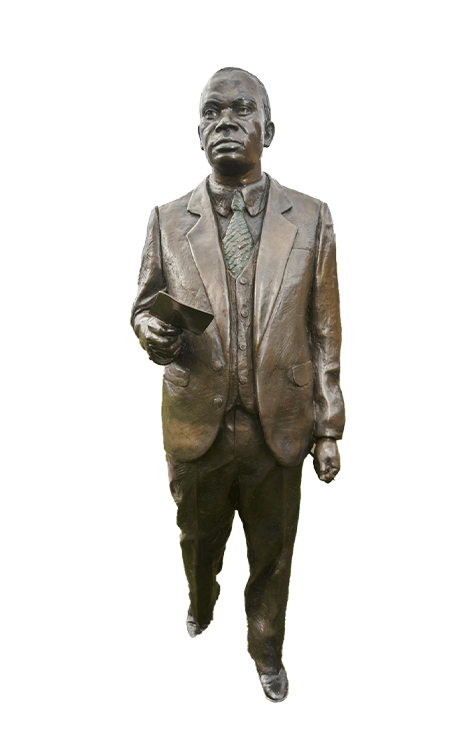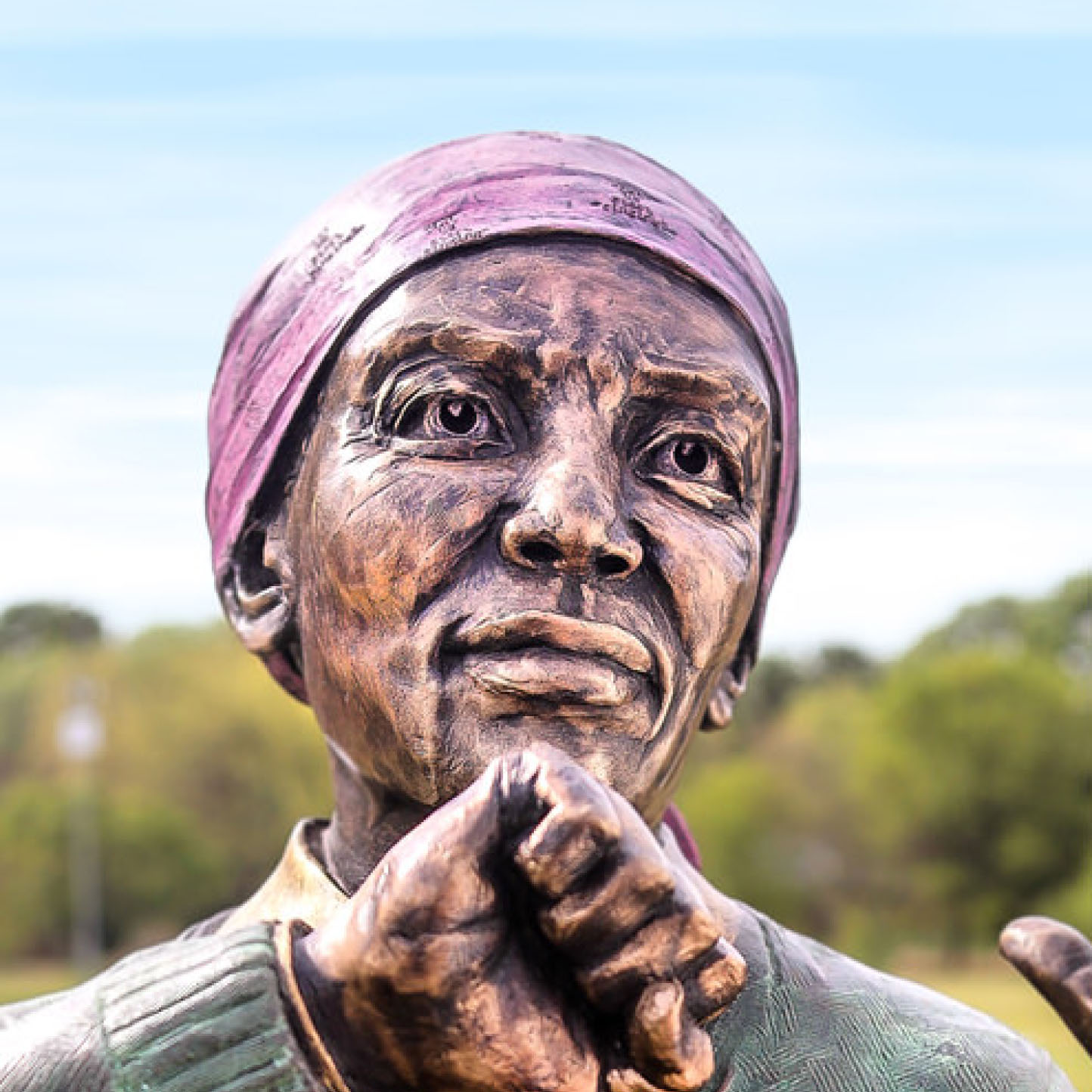
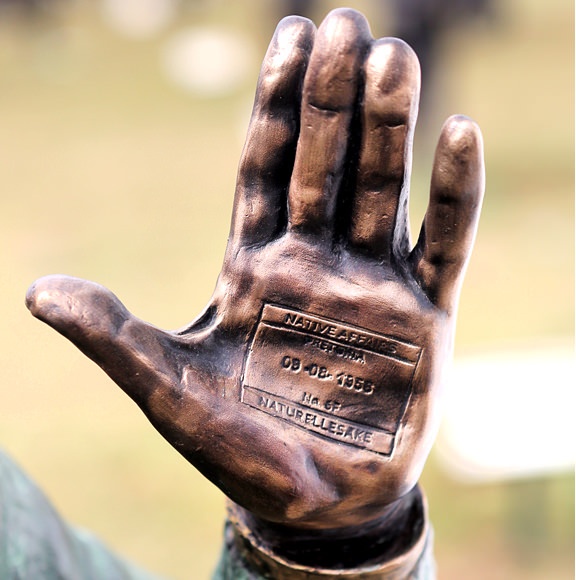
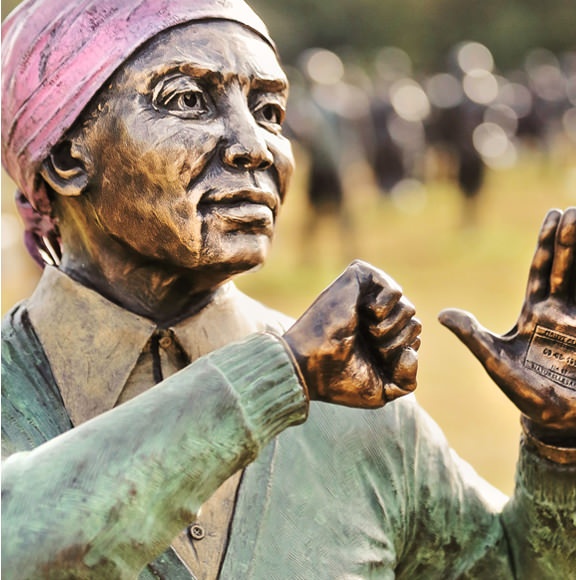
"Gone are the days when the place of women was in the kitchen and looking after the children. Today, they are marching side by side with men on the road to freedom."
– Ida Mntwana’s opening speech, FedSAW inaugural conference, 17 April 1954
Ida Fiye Mntwana
1903 - 1960
Second President of the African National Congress Women’s League, First President of the Federation of South African Women, Treason Trial Defendant
Ida Mntwana's political career began in 1927 when, as a dressmaker, she joined the Industrial and Commercial Workers Union, the first general workers trade union to embrace black workers from all industries from its founding in 1919.
Mntwana rose to national prominence when she was elected the second president of the African National Congress Womens League (ANCWL) in 1948. The ANCWL took the place of the Bantu Women's League, founded by Charlotte Maxeke in 1918 as South Africa's first women's political organization. It was renamed the ANCWL in 1943, when the ANC admitted women as full members of the organization.
Mntwana's election began a new era in the history of the league. The ANCWL was restructured and provincial leagues created, giving women throughout the country access to the national body. It opened the way for a new and dynamic leadership which resulted in a broader representation of working class women.
Mntwana was elected national president of the Federation of South African Women (FEDSAW) at its first conference in 1954. Under her leadership, FEDSAW drafted a Women's Charter, which was incorporated into the Freedom Charter adopted by the Congress of the People in Kliptown in June 1955. Mntwana resigned her position as national president in 1955.
Mntwana was an organizer for the Congress of the People, a leader of the women's anti-pass demonstrations during the 1950s, and a defendant in the Treason Trial from December 1956 until charges against her were dropped in December 1957.
She was known as a dynamic orator. In her speeches she emphasised the struggles of African women as mothers, wives and workers and is described as fiery and militant in her delivery. She is remembered in testimonies as a woman of outstanding courage and with a beautiful voice. Those who knew her relate instances of her singing freedom songs as police smashed up meetings, restoring calm among an angry crowd.
She died in 1960, the year in which the Treason Trial was in its fifth year and the ANC was banned.
